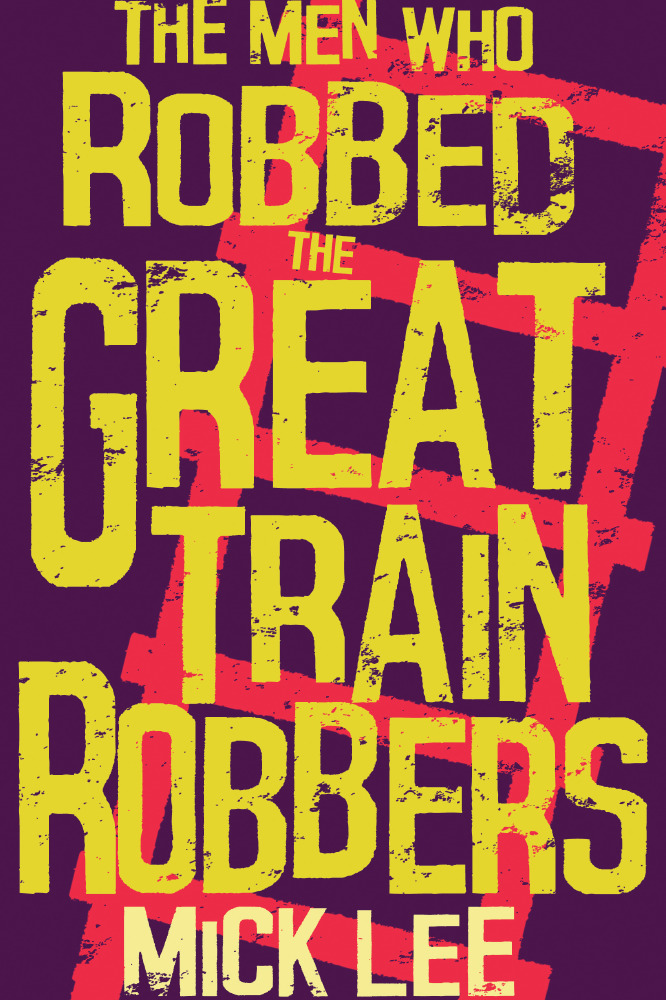
The Men Who Robbed the Great Train Robbers

The Men Who Robbed The Great Train Robbers is based on the story of an infamous crime in 1963 – looking closely at many of the unanswered questions surrounding it – principally who was really behind it, why they made such as mess of the getaway, and where the money went.
Marketing consultant by day … what drew you to writing?
I work as a Marketing Consultant on a freelance basis, which provides me with the opportunity to take time out and write. I originally threw in a job working for an automotive consultancy to write my first book, Scream if you want to go faster, a dark tale of a deranged serial killer. I found more joy in telling stories (usually dark ones) than sitting in meetings – and that is still the case.
What was the appeal of the Great Train Robbery for you?
The story is iconic, especially to a certain generation. It reverberated around the country like nothing before in 1963, and it was fascinating that so many people wanted the robbers to get away with it. It was a kick in the teeth for the establishment, and that had some appeal to the person in the street. I started to read all the factual accounts of the robbery simply out of interest to begin with. When I read up on the events, it set me thinking about a major re-interpretation of the story.
What made you want to re-interpret the robbery?
It is extraordinary that the various versions of events leading up to, during and after the robbery, are so contradictory. Every robber who has put pen to paper tells of a different tale, with little agreement over much of what happened, or who did what and when. The police who tracked them down also provide conflicting interpretations of events, and it is probably fair to say that in the context of sixties policing in Britain, their methods were far from above board. In my story, some of the Met already knew who was in the gang before they struck.
I was drawn to the fact that there was a massive variance between the way each man talked of who was behind the robbery, how much their share was, and what happened to the money. These questions led me to thinking about a darker, more sinister story. One that spoke of the men we have regarded as ‘Robin Hoods’ and heroes, being stooges of two master criminals – one of whom is real and is mentioned by some of the gang in their memoirs. It seemed to me that a more interesting and original angle could focus on the robbers being set up and then robbed in turn by their paymasters, and looking at the evidence, it is distinctly plausible. This explains the key questions more than any other description I have read.
Why do you think this is considered one of the greatest crimes of all time?
It is considered to be a significant crime largely due to the impact it had on society at the time – not just among the British public, but also among the ruling elite. After all, these London thieves effectively robbed the Queen.
What is your writing process?
I always have future ideas swimming around in my head, but I start with an outline of a story I want to pursue, and map out the structure, then profile the characters. Sometimes you need to do some research, particularly where there are real life events or places involved, as there was with the robbery. Then it is just a matter of getting words on the page. This is the most exciting part, when you sit in front of a laptop in the morning and at the end of the day you have created something that did not exist beforehand. And it all just came out of your head. I can’t think of anything more rewarding, even if ultimately I cut the content out in later edits.
On a practical level, I write early in the day, take a break in the middle and have found that I can still be creative in the evening as a result. The local library in Stony Stratford is a brilliant place to sit in peace and write. I go through a couple of drafts to begin with, and then start to finesse and cut down (I always write too much at first) in subsequent drafts – usually ending up with six or seven before I am happy. The worst part of the whole process is proof reading and the detailed editing at the end, where I have a couple of people I trust provide me with crucial input. All the fun is in the creation.
What is next for you?
I am currently working on the third draft of a novel which should come out in 2015. The working title is “Child A”, and it focuses on a boy that kills another child back in 1977 and the consequences of the crime in adulthood. It explores themes of retribution and reconciliation, and looks at issues such as how responsible a child of ten can be for their actions (admittedly extremely violent actions). The story also examines the debate over whether such a killer should have any rights when they reach adulthood, including anonymity. Underpinning the whole tale is a theme of degeneration of urban Britain, particularly new towns that were built in the sixties and seventies.

